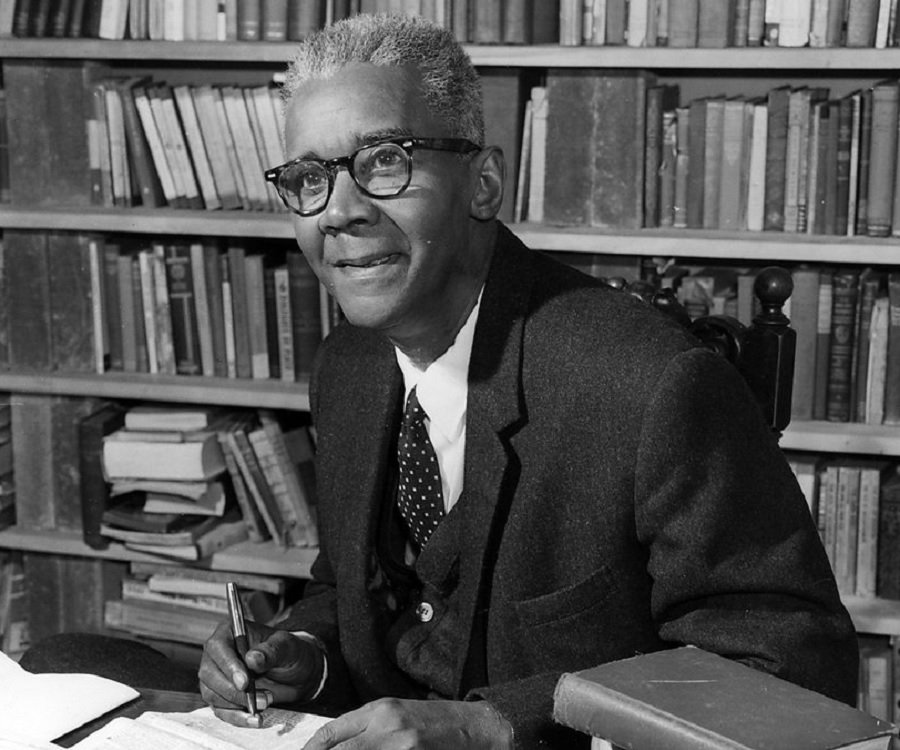Cyril Lionel Robert James was born in the British colony of Trinidad on January 4, 1901. James was a bright youth who absorbed literature, history, music, sports, and art-the foundational texts of Western civilization. He attended Queen’s Royal College in Port of Spain, but chafed at the rigid disciplinarianism of the educational British system. Yet he was deeply interested in and influenced by the game of cricket introduced by the British and became a local cricket reporter before turning to fiction. James wrote several early works of fiction in Trinidad before sailing for England in 1932 at the age of 31. While in England, James spent a great deal of time focusing his writing on issues relevant to the expatriate West Indian community. He published The Case for West Indian Self-Government in 1933.
James was increasingly exposed to social issues and turned to the writings of many Communist thinkers in this period. He became a major Trotskyist thinker as well as an ardent critic of fascism. He produced a play, Toussaint L’Ouverture, with Paul Robeson in the lead role which reflected his political leanings. James was becoming more interested in revolution and social liberation as well as questions of race. He published his landmark work, The Black Jacobins, in 1938, offering a Trotskyist analysis of the 1791 slave revolution in Haiti. James and his fellow Trotskyites remained opposed to Stalinism and offered virulent critiques of the system throughout the 1930s.
C.L.R. James arrived in the United States in 1938 and remained for the next twenty years. While in the U.S., he began to have doubts about the Trotskyist analysis of the Soviet Union and argued for a liberation of Marxism through a bottom-up emphasis. He also studied Whitman and Melville in this period. James returned to England in 1953 and five years later went back to his native Trinidad where he became involved in politics and the decolonization movement. James published Beyond a Boundary in 1963, a memoir and social commentary, that explored the place of cricket in West Indian and British society and its role in empire, family, masculinity, race, class, national culture, colonization, and decolonization. The work is widely viewed by critics as one of the best sports books ever written.
After 1960 James traveled widely throughout Africa and the Caribbean and was interested in the role of culture across boundaries. As a West Indian deeply-infused with Western culture, he sought to carve out a space of independence while still maintaining his love for what he saw as a series of cross-national ideals. He taught at the University of the District of Columbia starting in 1968 and wrote a series of works on culture, politics, radicalism, and revolution. James passed away on May 19, 1989 in London, England, on the brink of the collapse of the Soviet Union. He was survived by his widow Selma.
"When history is written as it ought to be written, it is the moderation and long patience of the masses at which men will wonder, not their ferocity."
- CLR James
C.L.R. James: A Revolutionary Vision for the 20th Century

Megathreads and spaces to hang out:
- ❤️ Come listen to music and Watch movies with your fellow Hexbears nerd, in Cy.tube
- 💖 Come talk in the New Weekly Queer thread
- 💛 Read and talk about a current topics in the News Megathread
- ⭐️ September Movie Nominations ⭐️
reminders:
- 💚 You nerds can join specific comms to see posts about all sorts of topics
- 💙 Hexbear’s algorithm prioritizes comments over upbears
- 💜 Sorting by new you nerd
- 🌈 If you ever want to make your own megathread, you can reserve a spot here nerd
- 🐶 Join the unofficial Hexbear-adjacent Mastodon instance toots.matapacos.dog
Links To Resources (Aid and Theory):
Aid:
Theory:



How does one get better at drawing? I have tried to look for art tutorials, but most I found are like "ok, so you do a very rough sketch" and then draw like something that could already pass for a full drawing in speed-up time lmao. Or just jump right into things. I need very basic shit, like on the level of "how do I even learn this" and then like how to draw shapes or something
Perspective, composition, light and shading and textures, and proportions are all things that an introductory class would cover.
Beyond that it's mostly a matter of doing it more. Draw a certain kind of object, and distort or tweak it in a bunch of ways, and you'll get better first at drawing that object and a little bit of generalizable stuff.
Yeah, I am just not sure on what intro class to pick. have not really started looking yet irl tbh. I got that it's mostly exercise, but I don't wanna exercise the wrong way